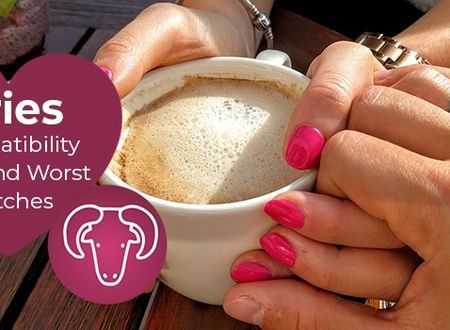I know the pain of a broken heart, which can be mended with forgiveness.
My understanding of forgiveness and why it matters
Forgiveness is a psychological construct having a physiological impact on the body. In my understanding, forgiveness refers to changing thoughts, feelings, or behavior toward an offense from negative to positive.
Forgiveness is a cognitive activity. It means that we can learn to forgive and to be forgiven. In this story, I refer to forgiving from the victim’s angle and briefly touch on eliciting forgiveness from the offender’s angle.
Forgiveness is also used in law. In the legal context, it refers to giving up or dismissing obligations and claims such as debt or criminal activity.
I look at forgiveness from health and well-being aspects. Based on my reviews, observations, and personal experiences, I firmly believe that forgiveness has healing attributes for our emotional traumas.
Forgiveness gives us the freedom to move from victim mode, empowering us to transform into a better mental state. Forgiving cannot change the past but can influence the future.
Forgiveness relates to humility and acceptance. These notions are critical attributes of people who heal their wounds and transform their lives into better functioning states.
For example, the pain might force one to take revenge. The offense might require justice. These are standard processes in various cultures. However, from a psychological angle, I believe forgiveness might benefit an individual better than taking revenge or refreshing memories with negative thoughts and feelings.
Expressing pain is a healthy approach and depicts emotional maturity bringing cognitive flexibility and contributing to cognitive reserves. I resemble cognitive reserves to our karma account. However, from my experience, it is possible to express the pain and forgive the event or person simultaneously.
An apology has healing power and is highly desirable to forgive someone or an offense. However, we don’t have to wait for an apology to forgive someone who made a mistake. Therefore, I believe that forgiveness is unconditional acceptance for our benefit.
Some mistakes might happen unintentionally due to a blind spot, which is easier to forgive. Unfortunately, some people intend to harm others for various selfish reasons. Despite all, forgiving can liberate the disadvantaged person from the offense.
Forgiving does not mean forgetting or denying an offense. As Kennedy advised, “forgive your enemies but never forget their names.”
Forgiveness also does not necessarily mean empowering the offender. Instead, forgiveness has a higher purpose activity to re-balance the mental energies of victims, making a physical impact on the body.
Forgiveness matters because it is healthy behavior. Forgiveness is a therapeutic activity. Those who forgive can move on and heal their emotional wounds faster. By forgiving our mistakes and others, we can substantially improve our mental health and enhance our happiness.
What does science say about forgiveness?
I have been studying the effects of forgiveness on human cognition for decades. When I started my research in the mid-1980s, I intuitively knew the importance and healing abilities of forgiving others unconditionally. Therefore, I created and fine-tuned my hypothesis with growing literature.
After the early 1990s, I came across hundreds of well-researched studies from science and academic communities. In addition, I read thousands of testimonials in spirituality and mindfulness communities. Every religion also advises forgiveness.
Furthermore, many scholarly books on leadership and self-improvement mention the importance of forgiving for personal and professional development.
It is impossible to mention proliferating studies. However, I’d like to cite a few meta-analyses reviewing established studies indexed on multiple scientific platforms, including the National Library of Medicine. For example, PubMed includes more than 1,800 scientific reports on forgiveness.
A 2021 meta-analysis published in the Journal of Clinical Medicine investigated the efficacy of forgiveness interventions in older adults. The researchers searched for studies published from 1990 to 2020 that attempted to promote forgiveness in older adults. They targeted many intervention studies.
Most participants in the intervention groups were female. “Participants that received forgiveness interventions reported significantly higher levels of forgiveness than participants that did not receive treatment. Additionally, forgiveness interventions resulted in more changes in depression, stress, and anger than no intervention conditions” Read depression quotes, when you feel down.
Researchers informed that “forgiveness treatment also enhanced positive states (satisfaction with life, subjective happiness, and psychological well-being).”
Another 2021 review paper, titled Forgiveness and Health Outcomes in Cancer Survivorship, published in an International Journal for Cancer Care Research, reviewed 277 articles. Twenty-four of them met their criteria.
Researchers concluded that “forgiveness in interpersonal relationships is a spiritual concern for individuals with cancer. Addressing forgiveness needs may promote mental health in cancer survivors.”
This 2020 systematic review titled “Forgiveness facilitation in palliative care” informs that “spiritual beliefs often include reconciliation and forgiveness, which are critical to patients and families in palliative care. Forgiveness facilitation can represent a valuable response as a multidisciplinary and non-pharmacological intervention to reduce suffering.”
Many studies that I reviewed indicate that forgiving someone is valuable for improving health and gaining joy in life. Eliciting forgiveness is also a psychological construct studied scientifically, as documented in this paper published in Wires Cognitive Science journal.
Brief Insights to Forgiveness from Observations
Years ago, one of my female friends, Maggie (not her real name), felt awful when her husband cheated on her. Initially, she had difficulty forgiving her husband. After some therapies and support from her friends, she forgave her husband’s wrongdoing.
As I documented in the story, Maggie gained tremendous relief after forgiving her husband. She overcame obesity, built a unicorn business, and supported hundreds of people to find better versions of themselves.
By changing her perceptions, I couldn’t hold my tears of joy when she told me she forgave her husband, thanked her for her growth, and wished him the best in his new life. It was a remarkable human trait that cemented in my memories.
I met several other single mums who experienced difficulties with their partners causing them grief. But they all confirmed that they regained their lives after forgiving them.
A distinguished psychiatrist and psychotherapist, Janine, who mentored me for years, always focussed on forgiveness when providing consultancy and therapy to her clients. I learned the importance of forgiveness for the human brain from many healthcare professionals like Janine.
When I asked for advice from many centenarians in my circles, they mentioned the importance of forgiving oneself and others and moving on to life with a clean slate.
In addition to observations, I also practiced forgiveness in my life. Like many people, I have tasted emotional traumas since my childhood. For example, I shared one of them in a story titled Here’s a Delayed Childhood Trauma That Burst In a Graduate School Class.
As I documented in that story, I forgave myself and my teacher, which resulted in incredible healing for me. I had no shame in sharing this personal story as it might be a lesson for some people who suffered childhood traumas.
For me, the best tool to practice forgiveness is leveraging compassion and kindness meditation. Learning about the impact of meditation on the human brain inspired me to use it for healing my traumas. By using meditation, I forgave others and my own mistakes. I made it a lifestyle choice.
I articulated the health benefits of meditation in a story titled, meditation can impact our genes and neurotransmitters. Therefore, I meditate three times daily and always visualize compassion, empathy, and kindness sensations to forgive mistakes and misconducts that help me heal my emotional wounds.
Final Words and Takeaways
Forgiving someone who harms us can be very difficult, especially when the pain is intense. This is due to the wiring of our brains. Forgiveness requires energy and strength. As Mahatma Gandhi cites, “The weak can never forgive. Forgiveness is the attribute of the strong.”
As Marianne Williamson articulates, “Forgiveness is not always easy. At times, it feels more painful than the wound we suffered to forgive the one that inflicted it. And yet, there is no peace without forgiveness.”
The primitive brain desire retribution, resentment, and vengeance. Thus it creates constant anxiety for survival. This is a normal neurological process. There is nothing wrong with it biologically.
However, as humans, we developed the neocortex, which allows us to tap into our higher self and universal consciousness. Using our thinking brain and tapping our higher self, we can forgive to survive and thrive.
Even though forgiveness might contribute to the offender to change behavior, it is not for the offender’s benefit but for the victim’s.
There are also occasions some offenders who regret their behavior elicit forgiveness genuinely. This is a positive move for them towards healing. It is a win-win position for both offender and victim.
Rather than listening to the signals of our reptilian brain, we can leverage the power of our thinking brain and rewire the entire circuit with the practice of forgiveness for better health and happiness.
We all make mistakes and even might hurt our loved ones unintentionally. No one is perfect. As Alexander Pope advised, “To err is human; to forgive divine.”
By forgiving, we cannot change the past, but we might change the future. Not only forgiving others but also forgiving our own mistakes can be invaluable for our health. Reinhold Niebuhr accentuated, “forgiveness is the final form of love.”
Thank you for reading my perspectives. I wish you a healthy and happy life.
Interested readers might find the scientific links in the original version of this article published on Medium.









Comments & Discussion
8 COMMENTS
Please login to read members' comments and participate in the discussion.